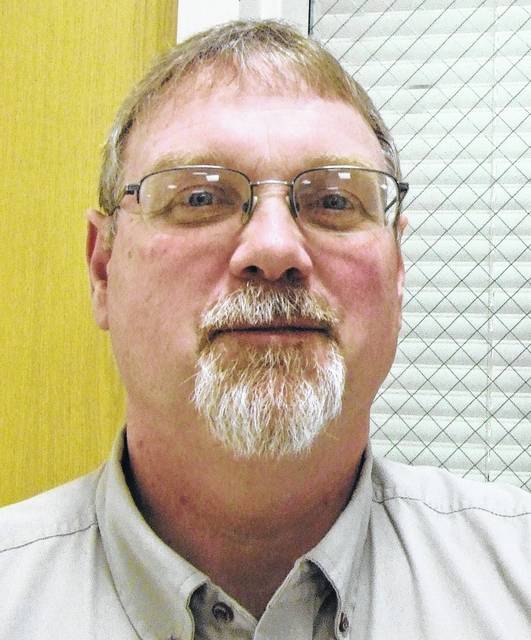
The fall harvest is beginning to really move along now, and the nice weather has been well received. As always, please be safe on our roadways as many slow moving, large pieces of equipment are moving field to field during harvest time.
Those involved in farming and agriculture know farming is a complex business. Many Ohio farmers utilize outside assistance for specific farm-related work.
According to Barry Ward, Leader, Production Business Management, OSU Extension this option is appealing for tasks requiring specialized equipment or technical expertise. Often, having someone else with specialized tools perform a task is more cost effective and saves time.
Farm work completed by others is often referred to as “custom farm work” or more simply, “custom work”. A “custom rate” is the amount agreed upon by both parties to be paid by the custom work customer to the custom work provider.
You can find the Ohio Farm Custom Rates publication by going to: https://farmoffice.osu.edu/farm-management-tools/custom-rates-and-machinery-costs .
You may also request a copy from us here at the Clinton County Extension Office by either giving us a call at 937-382-0901 or emailing me at [email protected]. We will also be posting it soon to our Clinton.osu.edu website.
The Ohio Farm Custom Rates publication reports custom rates based on a statewide survey of 377 farmers, custom operators, farm managers, and landowners conducted in 2020. These rates, except where noted, include the implement and tractor if required, all variable machinery costs such as fuel, oil, lube, twine, etc., and the labor for the operation.
Some custom rates published in this study vary widely, possibly influenced by:
• Type or size of equipment used (e.g. 20-shank chisel plow versus a 9-shank)
• Size and shape of fields
• Condition of the crop (for harvesting operations)
• Skill level of labor
• Amount of labor needed in relation to the equipment capabilities
• Cost margin differences for full-time custom operators compared to farmers supplementing current income
Some custom rates reflect discounted rates as the parties involved have family relationships or are strengthening a relationship to help secure the custom farmed land in a cash or other rental agreement.
Some providers charge differently because they are simply attempting to spread their fixed costs over more acreage to decrease fixed costs per acre and are willing to forgo complete cost recovery.
Taxes is another topic that we all think about from time to time. Do you prepare your own taxes or have a tax person do your taxes for you? Do you know if you are getting the most from your tax return?
Barry Ward is also the coordinator of the OSU Income Tax Schools, for the College of Food, Agricultural and Environmental Sciences, OSU Extension.
He suggests farmers and farmland owners who wish to increase their tax knowledge consider attending an upcoming webinar that will address tax issues specific to this industry. Content focuses on important tax issues and will offer insight into new COVID related legislation.
Mark your calendars for Dec. 3 to participate in this live webinar from 6:30-8:30 pm. The event is a joint offering from OSU Income Tax Schools which are a part of OSU Extension and the College of Food, Agricultural and Environmental Sciences and Purdue University Income Tax Schools.
If you are not able to attend the live webinar, all registered participants will receive a link to view the recorded webinar at a time of their convenience. This link will be available through the tax filing season.
The two-hour program is targeted towards owners who file their own farm taxes or simply wish to arm themselves with more tax information that will help them to better plan for tax filing.
Topics to be discussed during the webinar include:
• Tax issues related to COVID-related legislations including tax credits, PPP loans, EIDL loans etc.
• New 1099-Misc and 1099-NEC
• Tax planning in an unusual year: prevented planting crop insurance indemnity payments, Revenue Crop Insurance Payments, CFAP payments, etc.
• Like Kind Exchanges (farm machinery and equipment no longer are eligible for this provision – this is a significant change), how this change may affect state income tax and how this change may affect your Social Security credits and eventual payments
• Qualified Business Income Deduction, sales to cooperatives, lease income
• Other topics
The cost for the webinar is $35. To register, go to https://go.osu.edu/farmertax2020 .
For more information, contact Julie Strawser at [email protected] or call the OSU Extension Farm Office at 614-292-2433.
Tony Nye is the state coordinator for the Ohio State University Extension Small Farm Program and has been an OSU Extension Educator for agriculture and natural resources for over 30 years, currently serving Clinton County and the Miami Valley EERA.


